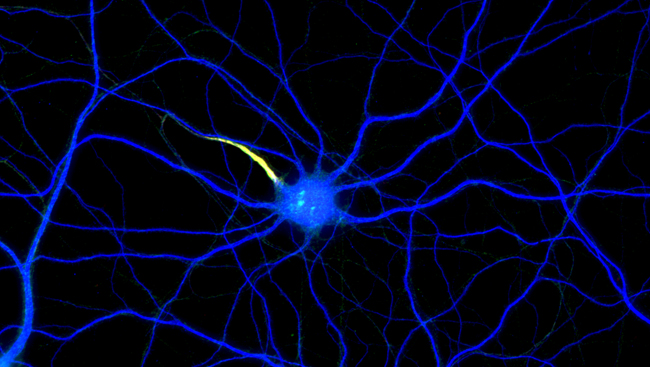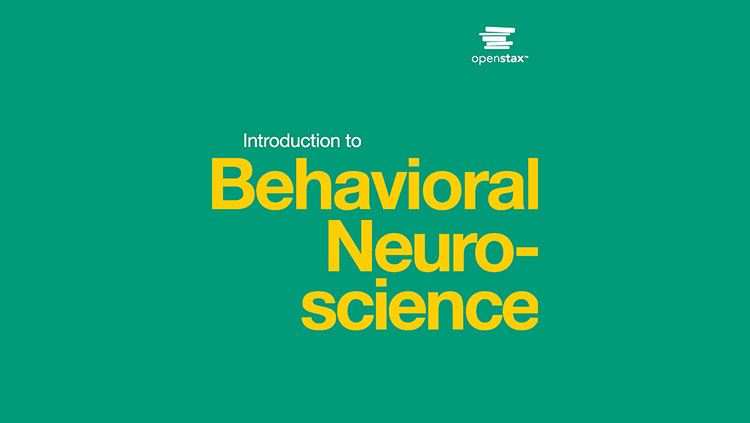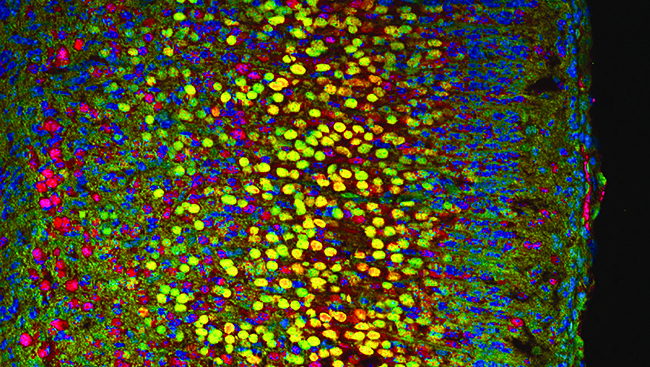Introduction: History and Overview of the Field
Marius Wernig, Kristin Baldwin, and Lorenz Studer provide a brief introduction to the training series (0:00-7:42) and the field of stem cell biology and reprogramming technologies.
This resource will review:
- Why the stem cell biology and reprogramming field shows enormous potential in modern biomedical research (7:42-18:37).
- A historical understanding of neural differentiation (18:37-30:36) and epigenetic reprogramming techniques (30:36-40:43).
After reviewing the introductory video, participants at all career stages should be able to:
- Understand the organization of SfN’s training series on stem cells and reprogramming methods in neuroscience.
- Understand the objectives of the training series and how to engage with the resources.
- Describe how the stem cell and reprogramming field has developed and advanced.
- Summarize the potential of stem cells and reprogramming technologies and how you can apply them to your neuroscience research questions.
- Identify current limitations of these technologies.
Speakers
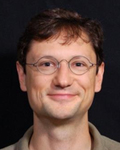
Marius Wernig, MD, PhD
Marius Wernig is an associate professor of pathology at the Institute for Stem Cell Biology and Regenerative Medicine at Stanford University. He graduated with an MD/PhD from the Technical University of Munich, where he trained in developmental genetics in the lab of Rudi Balling. After completing his residency in neuropathology and general pathology at the University of Bonn, he was a postdoctoral fellow in the lab of Rudolf Jaenisch at the Whitehead Institute for Biomedical Research/Massachusetts Institute of Technology. He joined the Stanford faculty in 2008.

Kristin K. Baldwin, PhD
Kristin Baldwin is a professor in the department of neuroscience at Scripps Research, where she is also an investigator at the Dorris Neuroscience Center, and an adjunct professor of neuroscience at the University of California, San Diego. Baldwin’s research interests lie at the intersection of molecular neurobiology, genomics, and stem cell biology/reprogramming. Her lab uses cloning, direct reprogramming, and genome editing to address questions of cellular diversity and genome stability in mice and humans. She received her BS in economics and zoology from Duke University and her PhD in immunology from Stanford University, and conducted postdoctoral work in neurobiology with Richard Axel at Columbia University.
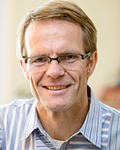
Lorenz P. Studer, MD
Lorenz Studer is the director of the Center for Stem Cell Biology and a member of the developmental biology program at the Memorial Sloan Kettering Cancer Center. His lab has established many of the currently available techniques for turning pluripotent stem cells into the diverse cell types of the nervous system. His primary research interest is in regenerative medicine, and he leads a multidisciplinary consortium to pursue the clinical application of human stem cell-derived dopamine neurons for the treatment of Parkinson's disease.
4 of 5 articles left
Login
or
Become a Member
to unlock content


